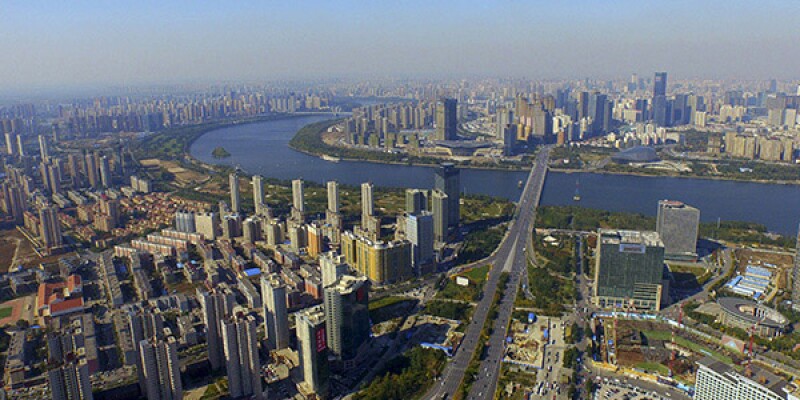
|
According to the city government, when a poll was conducted of 269 cities in China to find the 10 happiest, Shenyang ranked second.
The city enjoys a useful collection of attributes. It is obviously busy, but it does not suffer any of the traffic congestion of, say, Beijing or Shanghai. It does not have monuments as world famous as Beijing’s Forbidden City or Xi’an’s Terracotta Warriors, but it was the fount of the Qing dynasty and has three separate World Cultural Heritage sites. The people of the northeast are generally said to be among the friendliest in China. And the city has an increasing focus on its ecology, and aims to be one of the greenest in the country.
“Real life here is better than people think, and certainly better than foreigners anticipate,” says a long-standing foreign resident of the city.
Shenyang embraces many of the essentials of city living: well-planned transportation networks, cultural attractions such as theatres and sporting arenas, major educational establishments, greenery, vibrant shopping districts and of course the promise of interesting employment in new and specialist industries. The urban layout, functional and well planned, also helps. There are numerous city squares that provide leisure space among the workplaces.
The municipal government says that the city is served by 52 medical institutions that accept global medical accident insurance. There are 11 five-star hotels, including the Grand Hyatt and the Kempinski. There are 70 large supermarkets and 85 schools and universities that accept international students.
Foreigners with children in many cases have international schools reflecting their nationality and curriculum: Germans are well catered for (in a school whose pupils are mainly from families who work for BMW), although it is hoped that the French school – which closed after Michelin ended its construction phase – will be reopened. Shenyang International School, to give one example, was founded in 1998 and offers a North American education programme from K3 through to the 12th grade. The government has promised that more new schools will be developed.
Fitness is a priority in Shenyang. It hosted football events for the 2008 Beijing Olympics and in 2013 hosted the 12th National Games of the PRC. Mass fitness activities can be seen all over the city.
Additionally, there are fine locations on the edge of the city for winter sports enthusiasts. Each year the Shenyang Snow Festival creates a winter carnival of skating, skiing, and hot-spring bathing. Residents say Shenyang is very much a city of four seasons: winter is long and cold, summer very hot.
Cuisine in Shenyang is enlivened by the proximity of North Korea; there are districts of Shenyang where Korean is more widely publicly spoken than Chinese, and Korean restaurants abound.
In terms of international perception, Shenyang is somewhat under the radar. “There is a great theatre, but people don’t know about it,” says a resident. “Great orchestras play. It just needs to be better marketed.” The same could be said of the city in general: expatriates tend to be positively surprised when they move to it.